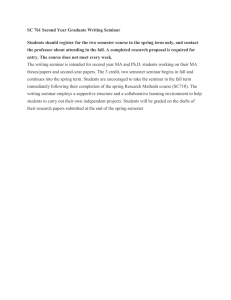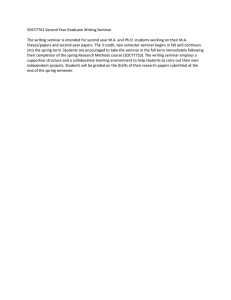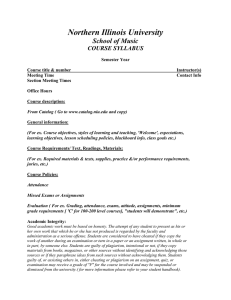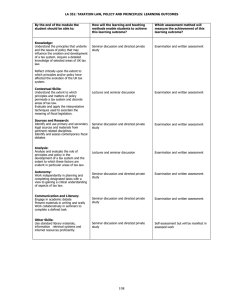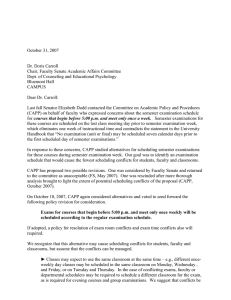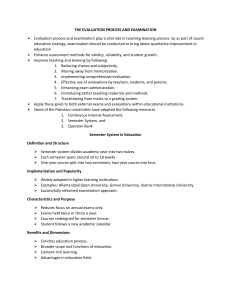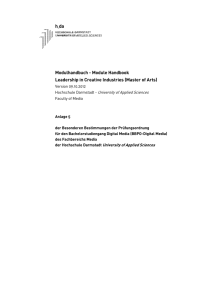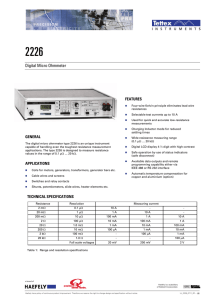Department of History MA Program Comprehensive Examination Guidelines
advertisement
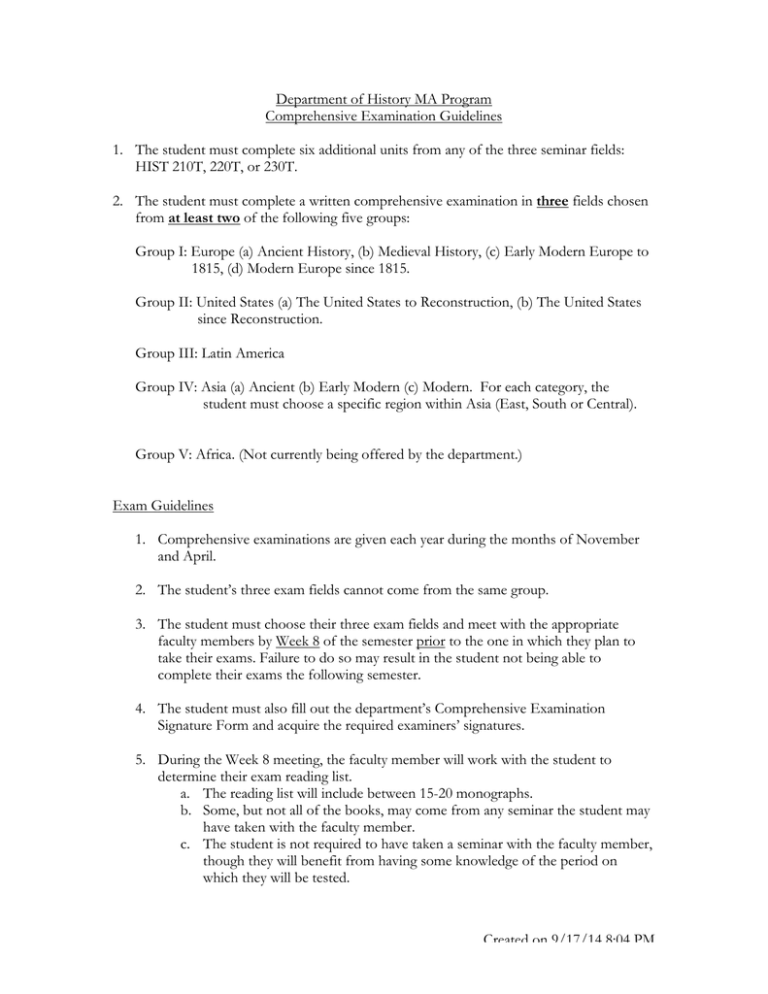
Department of History MA Program Comprehensive Examination Guidelines 1. The student must complete six additional units from any of the three seminar fields: HIST 210T, 220T, or 230T. 2. The student must complete a written comprehensive examination in three fields chosen from at least two of the following five groups: Group I: Europe (a) Ancient History, (b) Medieval History, (c) Early Modern Europe to 1815, (d) Modern Europe since 1815. Group II: United States (a) The United States to Reconstruction, (b) The United States since Reconstruction. Group III: Latin America Group IV: Asia (a) Ancient (b) Early Modern (c) Modern. For each category, the student must choose a specific region within Asia (East, South or Central). Group V: Africa. (Not currently being offered by the department.) Exam Guidelines 1. Comprehensive examinations are given each year during the months of November and April. 2. The student’s three exam fields cannot come from the same group. 3. The student must choose their three exam fields and meet with the appropriate faculty members by Week 8 of the semester prior to the one in which they plan to take their exams. Failure to do so may result in the student not being able to complete their exams the following semester. 4. The student must also fill out the department’s Comprehensive Examination Signature Form and acquire the required examiners’ signatures. 5. During the Week 8 meeting, the faculty member will work with the student to determine their exam reading list. a. The reading list will include between 15-20 monographs. b. Some, but not all of the books, may come from any seminar the student may have taken with the faculty member. c. The student is not required to have taken a seminar with the faculty member, though they will benefit from having some knowledge of the period on which they will be tested. Created on 9/17/14 8:04 PM 6. During the Week 8 meeting, the faculty member will also provide the student with specifics on how they plan to administer the exam. This will vary by faculty member. Possible options include: a. During the first week of the student’s final semester, the faculty member will give the student a list of possible exam questions that they will draw from on the exam date. b. The faculty member will give the student their exam question(s) on the actual exam date. c. The faculty member may or may not require the student to meet regularly in the months leading up to their exam. 7. During the Week 8 meeting, the faculty member will also explain the exam format to the student. Possible options include: a. The student will have three hours to complete the exam. The student will be provided with a quiet workspace, but must bring paper and a writing utensil. The student will be allowed to use their notes and books. b. The student will have twenty-four hours to complete their exam. The student will be expected to produce a typed essay with proper formatting and citation. Typically, essays will be 10-15 pages in length. Expectations 1. The student is expected to demonstrate a solid understanding of the major historiographical debates surrounding the particular exam field. In preparing for the exam: a. The student should focus more on each author’s argument and how it relates to others who have written on the topic. b. The student should spend far less time memorizing specific historical facts, dates, events, etc. c. The student should think about how scholars’ views on a particular topic or theme have changed over time. 2. The faculty member who assigned the exam will be responsible for grading the work. Possible grades include: High Pass, Pass, Low Pass, Fail. If the faculty member is unsure of the grade earned, he or she may consult with another faculty member. 3. The student will receive his/her grade within two weeks of taking the exam. 4. Students are allowed to retake an exam once if they fail it the first time. Created on 9/17/14 8:04 PM

